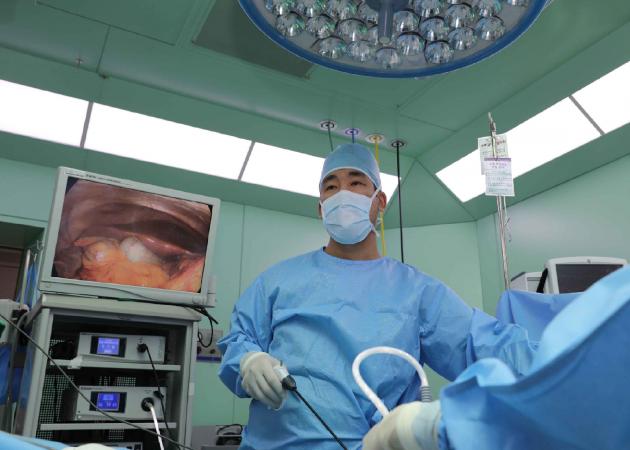If only people with appendicitis get surgery within 24 hours of its breakout, it has little effects on their prognosis, researchers at Hallym University Dongtan Sacred Heart Hospital have found.

The appendix is a clogged tube that looks like a tail attached to the end of the cecum and appendicitis causes inflammation, swelling and pus in the appendix. If appendicitis occurs, the swelling may worsen, and the necrotic appendix may puncture the outer wall and rupture, which in turn, can lead to peritonitis and cause a fatality.
Such symptoms are why doctors recommended immediate surgery to prevent any further complications. Sometimes, however, immediate surgeries are not an option if the patient visits the hospital at night or early in the morning.
To confirm whether there is a correlation between the onset of the symptom and when the patient’s received the surgery, the team, led by Professor Kim Jong-wan of the department of colorectal surgery at the hospital, researched the effects of timing of appendectomy on the risks of perforation and postoperative complications.
Professors Shin Dong-woo, Park Sung-gil and Kim Jeong-yeon from the same hospital, and Professor Park Jun-ho from Kangdong Sacred Heart Hospital also participated in the research.
The researchers analyzed the time from symptom onset to surgery and the relationship with perforation on 1,753 patients who underwent appendectomy with acute appendicitis at the two hospitals.
Of the total, patients, 1,258 (71.8 percent) had no perforation or complications after surgery while 495 (28.2 percent) had perforated appendicitis, while 176 of those patients showed postoperative complications.
The researchers divided the time from the onset of appendicitis to surgery in the two patient groups and defined the time from symptom onset to admission as “symptom time” and the time from admission to surgery as “hospitalization time.”
As a result, the team found that the probability of perforation increased in patients, who had a body temperature above 38 degrees Celsius, exceeded 13,000 per 1μl leukocyte count in their blood, neutrophil counts in leukocytes which exceeded 80 percent, and when the patient received the operation 24 hours after the symptom onset.
Postoperative complications also were more likely to appear when the neutrophil rate exceeded 80 percent, and the symptom duration exceeded 48 hours. The length of hospital stay did not affect perforation or complication.
With the data, the team concluded that if the patient receives surgery within 24 hours after the onset of the symptom, it does not affect the prognosis such as perforation or complications.
“As appendicitis patients fast and receive antibiotics to control inflammation after admission, surgery within 24 hours does not affect perforation or complication even if they are admitted at late at night or dawn,” Professor Kim said. “Rather, the patient’s condition during the onset of the symptom such as fever, inflammation and abdominal pain can affect the outcome of the surgery.”
The hospital noted that appendicitis is often mistaken for cecitis and that the appendix is different from the cecum. Removal of the appendix does not affect the function of the digestive system or the immune system.

